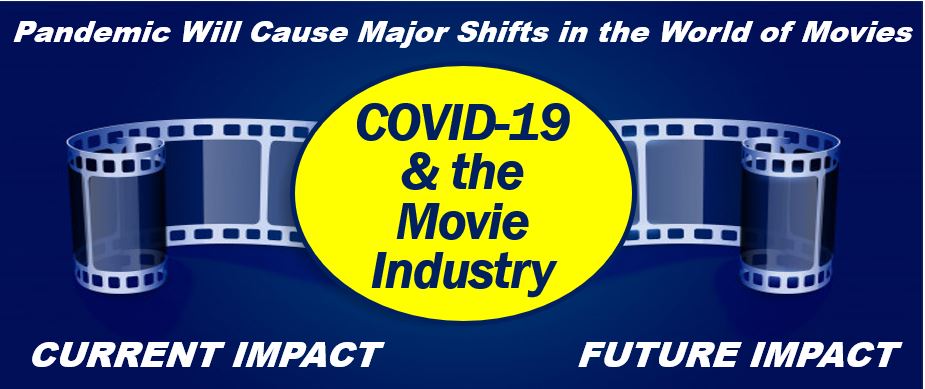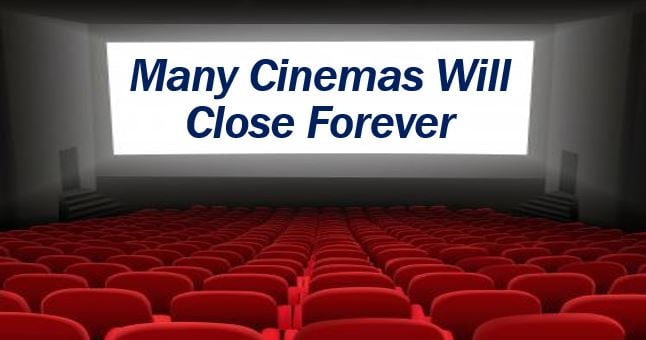The novel coronavirus has conjured uncertainty in industries across the board; according to entrepreneur and investor Randal Gindi, the movie industry is unfortunately no exception. Given his expertise in monitoring market trends, the following are Randal’s observations and predictions regarding the current COVID pandemic as it relates to the movie industry as a whole.

Movie Industry Losses and Cancellations
When the World Health Organization (WHO) first declared the novel coronavirus as a pandemic in March of 2020, expert estimates suggested that the global box office would sustain as much as $5 billion in losses as the direct result of the virus’s economic impacts. With the pandemic more than four months underway, exact implications remain uncertain.
The only prediction that seems universally clear is that the current situation will cause significant shifts in the industry as a whole.
As highlighted by Randal Gindi, many anticipated films which were in progress at the start of the year (including Avatar 2, Avatar 3, The Batman, Cinderella, Elvis, Jurassic World: Dominion, The Matrix 4, Mission: Impossible 7 and many others) have been suspended for the foreseeable future, with several others reporting significant delays. A considerable handful of anticipated releases have been cancelled entirely.
Significantly Reduced Budgets
With the global economy still reeling from the continued impacts of the pandemic, most all of the nation’s theaters have shut their doors to the public. With no incoming revenue for the foreseeable future, many cinemas will inevitably fold during this period of temporary closures. Furthermore, establishments that are able to sustain operations long enough to reopen in the coming months will be faced with further challenges.

As unemployment rates reach record highs, newly reopened theaters will likely experience steep declines in ticket sales. In short, the average consumer will simply have less income to spend on entertainment, dealing a crippling blow to the movie industry.
As a result, Randal Gindi anticipates that the movies produced over the next several years will have relatively modest budgets, especially in comparison to many of the most recent pre-pandemic blockbusters. While the 2019 blockbuster Avengers: Endgame boasted a budget of more than 350 million, the movies produced following the COVID-19 pandemic will likely scale back production costs in order to account for decreased demand.
As increased economic pressure creates tighter profit margins, lower-budget films will likely become the standard.
Shifts Toward Digital Production Methods
Social distancing mandates have made it unsafe for movie production to proceed as usual. Often, filming requires that a large cast and crew work together in an enclosed space—a situation which poses significant health and safety risks given the current pandemic.
To remedy these difficulties, Randal Gindi predicts that production companies will increasingly turn to computer generated and even animated alternatives, spurring a digital shift in the movie industry. Unlike the large teams of cast and crew members needed to execute a traditional motion picture, small teams of visual FX artists and voiceover actors are able to produce feature films while working independently at a safe distance.

Normalization of In-Home Releases
With lockdown laws varying across the world, the global population has never spent more time indoors. As a result, the demand for in-home entertainment has skyrocketed. Netflix, for example, received a whopping 16 million new subscribers in the first month of lockdown alone.
Viewing the captive audience as a distinct opportunity, companies like Disney have chosen to release productions slated for theater premiers directly to online streaming platforms instead. The Disney movie Onward, for example, was released in March amidst growing COVID concerns. After suffering poor box office numbers, the company decided to make the movie immediately available for purchase, bypassing the window which traditionally exists between theater releases and streaming releases.
Following suit, movies like Sonic the Hedgehog, Birds of Prey, and Artemis Fowl released simultaneously in theaters and streaming services. Others opted out of cinema runs entirely. Looking to the future of the movie industry, Randal Gindi notes this practice may become the new norm.
Interesting related article: “The most influential movies ever.”

